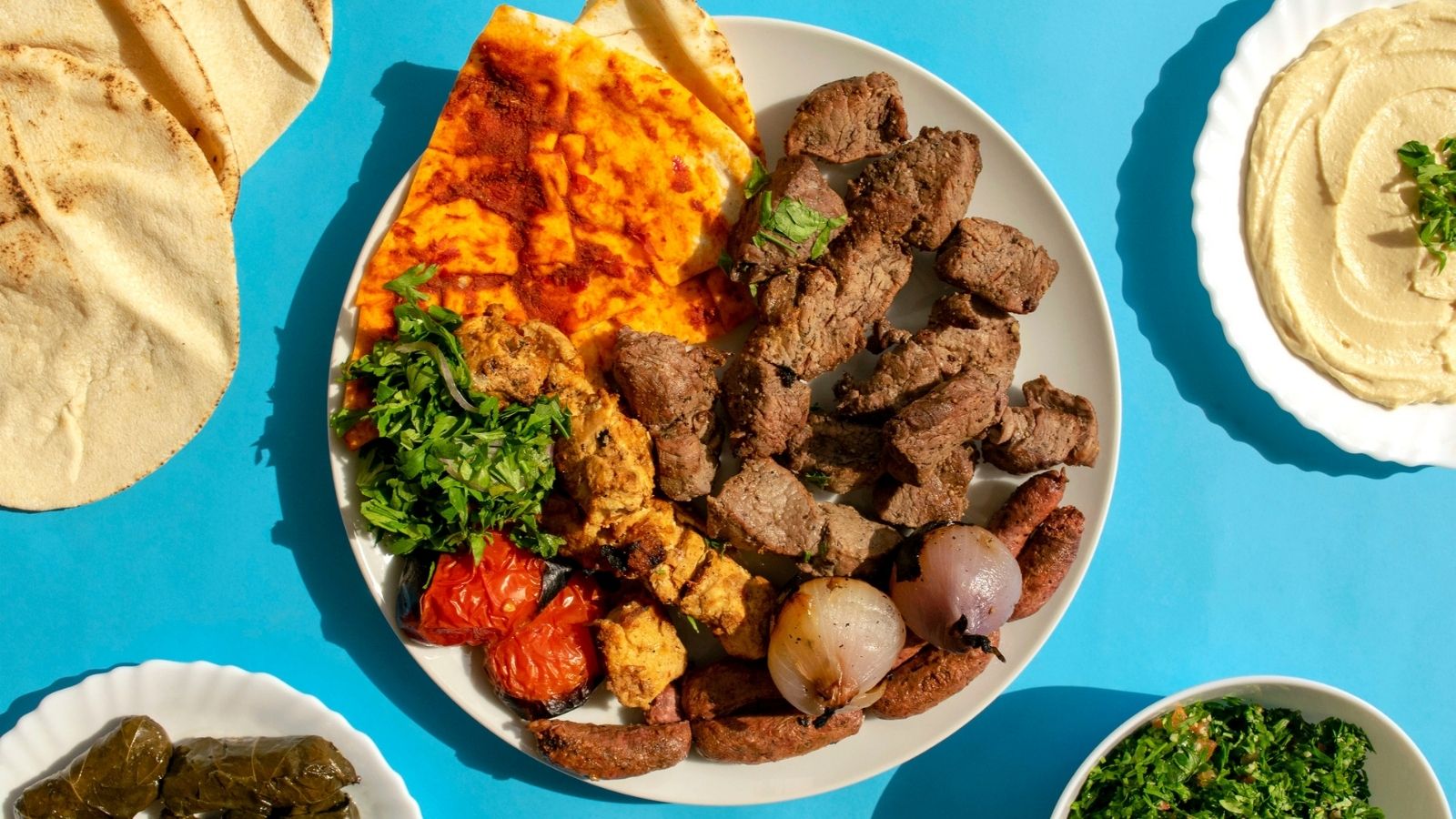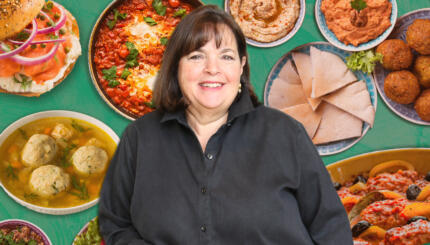It happens without fail. I’ll be guiding a culinary tour in Jerusalem’s Machane Yehuda Market, and I’ll come to the point where I describe meorav Yerushalmi (Jerusalem mixed grill). Then comes the same reaction: faces scrunched up and a slight wince of disgust.
You see, meorav Yerushalmi is a dish that features chicken organ meats, the type of food that generates a visceral (and typically negative) response. I follow with the rejoinder, “It’s not for everybody, though lots of people love it. I love it.” I then describe where they can get it, if they’re daring.
But why does meorav require adventurousness? Our grandparents ate offal regularly. Only recently did it lose popularity, turning from delicacy to denigrated. Meorav Yerushalmi, however, has somehow remained popular in Israel. The food’s apocryphal origin story contributes to its charm, while its expression of Jewish values increases its staying power.
Back around 1970, Jerusalem was a poor city. People were careful with what they spent, and that frugality was best expressed via food choices. If you bought a chicken, you ate everything. So Jerusalemites took the hearts, livers, spleens, and kidneys, added some breast meat, onions, and a whole bunch of spices, grilled it all together, chopped it up, and (like all good street foods in Israel) shoved it into a pita.
The Nosher celebrates the traditions and recipes that have brought Jews together for centuries. Donate today to keep The Nosher's stories and recipes accessible to all.
The legend you’ll hear of the dish’s birth tells of a customer arriving late at a Jerusalem eatery. The restaurant had little food left, and the charcoal grill had already died out. Some chicken offal was still in the kitchen, so they threw them with a healthy dose of spices for flavor onto a makeshift griddle. (Short-order planchas hadn’t yet made their appearance in Jerusalem.)
Like any popular dish born of necessity, meorav Yerushalmi varies greatly by eatery and cook. To be considered a true meorav, it must include some chicken innards and onions, and typically some breast meat as well. Some places include turkey meat, too. I’ve even seen contemporary recipes calling for lamb, though I’ve never encountered that in any Jerusalem restaurant. The spice mixture is the dish’s most closely guarded secret, each chef following a unique palate. Turmeric is common, as is pepper; where one restaurant adds paprika and cumin, another might go for coriander or even cinnamon. Despite these variations, the cooking method remains the same: Meurav must be griddle cooked, never oven roasted or charcoal grilled.
Perhaps these distinctions spawned the Jerusalem food fight: Who invented meorav Yerushalmi? In my research, I’ve come across at least four different places that claim to have invented the meorav (though some have closed in the intervening decades). I live right next door to Hatzot (“Midnight”) restaurant, one of the places most commonly connected with the claim (probably because they prominently emblazon it across their awning).
If each place used slightly different ingredients, maybe they all invented a different meorav Yerushalmi. Uncovering which was actually the first is impossible. And frankly, does it really matter? I’m just happy to have the enticing aroma wafting in my windows from next door each night.
More than just a remnant of Jerusalem’s “old days,” meorav Yerushalmi follows in a long line of identifiably Jewish foods. Jews have faced poverty through much of our history, so our cooking often stretches basic ingredients. From Ashkenazi knishes to Turkish kashkarikas (using just the peels of zucchini) and Italian testine di spinaci (spinach stems), our cooking features a thrifty ingenuity.
Furthermore, Jews have historically understood the Biblical injunction of bal tashchit (do not wantonly destroy) as particularly prohibiting food waste. Wherever and whenever Jews have lived, we’ve been famous offal-eaters. Stuffed intestines and spleen, fried brains, pickled tongue, and sautéed lungs are just a few of the offal dishes that made their home in Jewish kitchens.
Today, these foods are rarely eaten in the affluent U.S. (How chopped liver bucked the trend is an interesting question.) Here in Israel, however, offal remains popular. Even we, however, are not immune to global trends; many places today just use breast meat (without innards) and call it meorav, though any purist knows that’s bogus. Even in the classic eateries, meorav now features a higher proportion of breast meat than it presumably did when the dish was first invented.
It’s also no longer for poor people. At Hatzot, meorav Yerushalmi in a pita runs 45 NIS (about $13.50).
Nowadays, people chase hot food trends or Instagramable menu items. Delicious and nutritious classics deserve at least as much attention. With Ashkenazi gefilte fish and schmaltz experiencing resurgent gourmet popularity, perhaps meorav Yerushalmi will make the next Jewish food comeback.
Truth is, it never really “left” in the first place.



